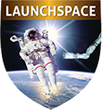Course Details
Course Summary
This professional course covers US and International launch services and how to evaluate, select and contract for them from a buyers perspective. The foundation of national space transportation policy and law is established. Then the key considerations in selecting a launch service that best fulfills the buyers needs are defined. The capabilities, constraints and prices of these services are compared for commercial Ariane, Cyclone, H-II, Long March, Proton, Soyuz and Zenit, Atlas, Delta, Pegasus, Tauries and the EELVA, as well as new small launch vehicles entering the market. Cost of launch services, insurance, launch site unique factors and payload processing support are surveyed together with the lift capabilities, environmental levels and spacecraft attachments and fairing volumes for each vehicle. Boilerplate and special contract terms and conditions relating to liquidated damages for launch delays, success/failure incentives, reflight/refund if launch failure, schedule of progress payments, liabilities for third parties/property damage and termination for convenience/cause are discussed. The elements, time lines and flows of contracting, spacecraft integration and vehicle processing and launch are detailed. We will examine past launch failures to see what buyers can learn from these mistakes. A special one-day summary version of this course is also available. Contact Launchspace for special pricing.
Course Materials
Include extensive notes and reference materials.
Who Should Attend
Senior executives and managers and principal investors and buyers responsible for selection, procurement and contracting for launch services. Project managers and integration engineers responsible for spacecraft vehicle integration and technical oversight of the delivery of launch services. Launch vehicle discipline engineers interested in lessons learned from past flight failures and what to look for in their flight readiness reviews and countdowns.
What You Will Learn
National space transportation strategy as defined in its policies and laws. Key considerations when selecting your launch service. The capabilities, constraints and prices of all national and international vehicles. Prices not just for the launch service, but launch insurance, payload processing services and use of overseas sites. The specifics of contract terms and conditions from the buyers perspective. How to structure your technical oversight of the delivery of your launch service to increase success rates. Lessons learned from past launch failures and how to benefit from this experience.
Course Outline
- National Space Transportation Policy and Laws.
Overview of progression of national strategy, from sole dependence on the Space Shuttle to reliance on a national mixed fleet. The Governments role in the commercialization of space transportation. Constraints on use of excess ballistic missile assets and the private sectors use of foreign launch services. - Consideration in Selection of Launch Services.
Price, performance, availability, manifest flexibility, spacecraft volume, orbital errors, launch environment, launch delays, and launch reliability. - Launch Vehicle Capabilities, Constraints and Prices.
In-depth index of U.S. and International operational and new launch vehicles. Launch sites, launch rate capabilities, lift capabilities, spacecraft fairing dynamic envelopes and attach interfaces, environmental levels, launch success records and launch service prices. - Contracting for Launch Services.
Launch service program elements and time lines. Responsibilities and tasks of both launch service provider and buyer. Specific launch service contract terms and conditions. Launch insurance trends and rates. How to structure the buyers technical oversight program. - Lessons Learned from Flight Failures.
Causes, corrective actions and lessons learned from past 20 years of national experience. Points where to invest your technical oversight attention and efforts.
